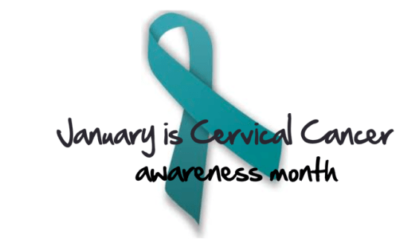
MAY IS LUPUS AWARENESS MONTH:
PUMP UP THE PURPLE!
Have you noticed a lot of people donning the color purple this month? It could be because May is Lupus Awareness Month. “Pump up the Purple” is the call to action for a campaign to raise awareness and funds for lupus research and education programs.
Lupus is a chronic auto-immune disease that can adversely impact many parts of the body. There are several different kinds of lupus, and no two cases are alike. Many scientists believe lupus develops in response to a combination of factors within and outside the body, including hormones genetics and the environment. Roughly five million people around the world are estimated to have lupus, including 1.5 million in the United States. Some 16,000 new cases of the disease are reported each year, developing mostly in younger people, ages 15-44.
Ninety percent of patients living with lupus are female, and research indicates that minority women are two to 3 times more likely to contract the disease than their white counterparts. A 2014 study conducted by the Michigan Lupus Epidemiology and Surveillance Program minority women tend to develop lupus at a younger age, experience more complications and have higher mortality rates.”
According to the Lupus Foundation of America, nearly two-thirds of the general public no little or nothing about the disease beyond its name. To help change that and combat the disease, here are some facts that you should know:
- Lupus is not contagious. You cannot catch it or give it to someone else.
- While there have been findings that indicate that genes may somehow figure into the development of lupus, no one gene or group of genes has been proven to cause lupus.
- Lupus is often referred to as the “great imitator” because its symptoms mirror those of many other diseases, often making it difficult to diagnosis and, as a result, to treat.
- People with lupus report experiencing a variety of symptoms including recurring low-grade fevers; extreme fatigue; butterfly-shaped skin rashes; joint pain and swelling; hair loss; ulcers on the nose or in the mouth; chest pain or breathing problems, kidney inflammation; gastrointestinal problems; blood clotting and anemia. The occurrence of these symptoms is often referred to as flares or flare-ups. They can vary in intensity, degree, and frequency.
- Lupus is not easy to diagnose, and it may take months or longer to confirm. People experiencing four or more of its symptoms with no other explanation for why they are occurring are encouraged to discuss lupus with their doctors.
- Lupus is generally diagnosed by providing your doctor with a complete and accurate medical history; undergoing a physical examination, X-rays and lab tests. It is not uncommon for a medical practitioner to refer a patient to a rheumatologist who specializes in diagnosing, managing and treating the disease.
- Early diagnosis, as well as avoiding triggers such as excessive exposure to the sun, can help in managing lupus. A rheumatologist can treat lupus with a variety of medications that can slow the progress of the disease and help lessen the discomfort associated with its symptoms.
- While there is presently no cure for lupus, understanding the disease, how it presents itself, and possible triggers can help patients prevent flare-ups or make the symptoms less severe. Experts agree that the best course of action is to work closely with a doctor to develop, review and, when necessary, revise a treatment plan. While some people die from the disease, with close follow-up and treatment, research indicates that 80-90 percent of people living with lupus can expect to live a normal lifespan.
To learn more about lupus, visit the Lupus Foundation of America at https://www.lupus.org.
Information and statistics cited in this article were derived directly from the following sources:
https://www.lupus.org
www.lupusawarenessmonth.org/gopurple.html
https://resources.lupus.org/entry/facts_and_statistics
www.health.facty.com/conditions/lupus/10-symptoms-of-lupus/
www.lupuscorner.com
OTHER NEWS
FEBRUARY IS AMERICAN HEART MONTH
This year, as our hearts fill with pride while we celebrate Black History Month, let us also remember to focus on our heart health. And not just on Valentines Day – the entire month of February is American Heart Month.
Heart disease is the leading cause of death for men and women in the United States and certain minority groups face a greater risk than others. Deaths from heart disease are higher in Black Americans than in White Americans and other ethnic groups, and heart disease develops at a younger age in African Americans.
But, heart disease can often be prevented when people know their risks, make healthy choices and manage their medical conditions. So this month, learn the signs and symptoms and the steps you can take to make a difference in your life and the lives of your loved ones at https://www.goredforwomen.org
January is Cervical Cancer Awareness Month
According to The American Cancer Society, “Cervical cancer was once one of the most common causes of cancer death for American women. The cervical cancer death rate dropped significantly with the increased use of the Pap test for screening. But the death rate has not changed much over the last 15 years.” And several studies show that a disproportionate number of women that die each year from cervical cancer are Black women.
The American Cancer Society also stresses the importance of regular screening for the disease, emphasizing that, “Screening tests offer the best chance to have cervical cancer found early when successful treatment is likely.
I AM THE CHANGE FORUMS
The Black Women’s Agenda, Inc. is taking its “Living Your Best Life At Every Age: I Am The Change” town hall on the road! Introduced with support from AARP at its 41st Annual Symposium in September 2018, the forum encourages participants to consider where they are and want to be from a financial, educational and health perspective, and to be a catalyst for change for themselves, their families, and communities.
© 2025 The Black Women’s Agenda, Inc. All Rights Reserved. Privacy Policy








